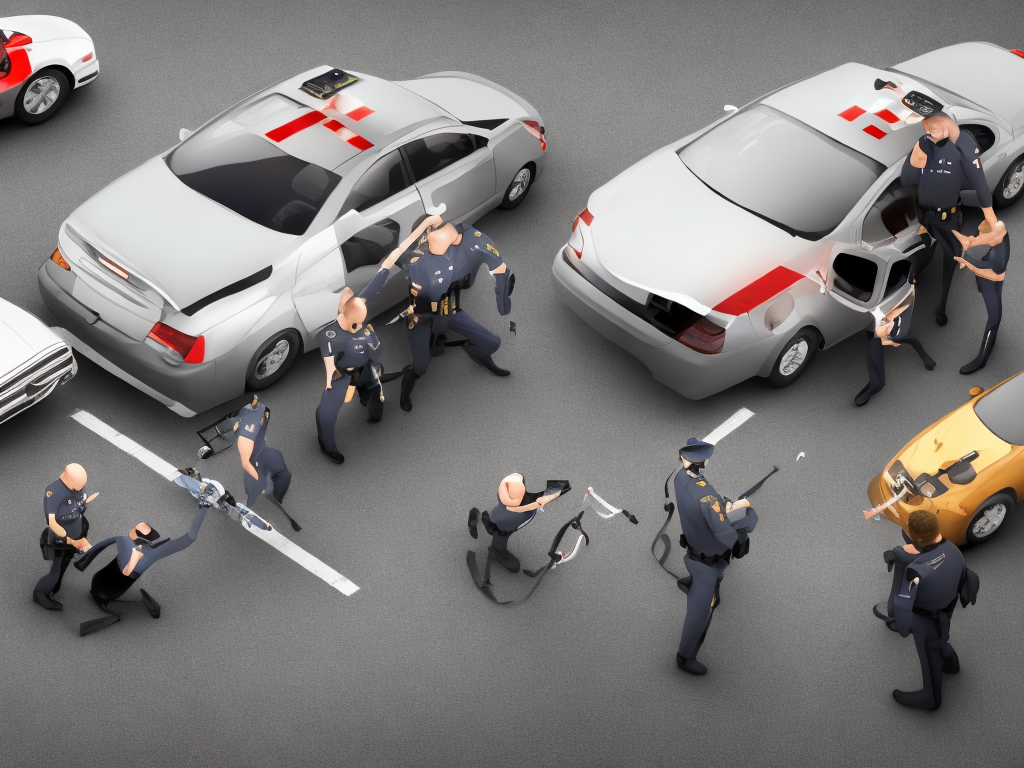
Driving under the influence (DUI) and driving while intoxicated (DWI) are two terms used synonymously, and they tend to create a blurred line of distinction. However, both terms refer to different violations under the law, and it is essential to understand the difference between the two.
DUI and DWI are crimes committed by drivers who operate a vehicle while their abilities are impaired due to the use of alcohol or drugs. Each state has its own laws and penalties for these crimes, and they may vary depending on the circumstances of the violation. However, the fundamental differences between DUI and DWI lie in their definitions, the severity of the charges, and the respective legal penalty.
DUI refers to driving under the influence of alcohol or drugs. It is the most common type of alcohol-related offense, and it is usually classified as a misdemeanor. A DUI charge means that a driver has a blood alcohol content (BAC) level of 0.08% or higher, which is the legal limit in most states. However, the limit is lower for drivers who are under the age of 21, commercial drivers, and drivers with prior convictions. In addition to alcohol, a DUI can be issued for driving under the influence of drugs or a combination of alcohol and drugs.
DWI, on the other hand, refers to driving while intoxicated. It is a more severe offense than DUI and is classified as a misdemeanor or a felony. A DWI charge means that a driver has a BAC level of 0.08% or higher, or they exhibit signs of being under the influence of drugs. Additionally, drivers who exceed the legal BAC limit by a significant margin, such as a BAC of 0.15% or higher, may face more severe charges.
One significant difference between DUI and DWI charges is the penalties attached to each offense. A DUI charge usually carries lower penalties than a DWI charge. The punishment for DUI can include fines, license suspension, participation in alcohol education programs, and community service. For first-time offenders, the penalties may be less severe, and they may qualify for a DUI diversion program, where they complete specific education courses rather than face the legal penalty.
In contrast, a DWI charge comes with a significantly higher legal penalty. The penalties for DWI can include jail time, significant fines, probation, suspension or revocation of the driver's license, and mandatory attendance in substance abuse treatment programs. Repeat offenders may face even harsher penalties, such as mandatory jail time, and they may be required to install an ignition interlock device (IID) to start their car when an alcohol-free breath test is not detected.
Another significant difference between the two is the amount of evidence required to make an arrest for DUI and DWI. Typically, a police officer must show a reasonable suspicion that a driver is under the influence before pulling them over. Once stopped, the officer may ask for a breathalyzer or field sobriety test to determine the driver's BAC level. However, to obtain a DWI arrest, the officer needs to have probable cause, which means they must have strong evidence to support the charge. A DWI arrest may require additional investigations, such as a blood or urine test or a more advanced breathalyzer test.
In conclusion, DUI and DWI are two similar but distinct traffic violations. DUI typically refers to a misdemeanor charge for driving under the influence of substances, particularly alcohol, while DWI is a more severe charge that may be classified as a felony. There is a significant difference in legal penalties attached to each offense, with DWI carrying steeper fines and more significant consequences, particularly for repeat offenders. While both charges can result in significant fines, jail time, and penalties on the driver's license, it is essential to understand the differences between each offense, particularly when considering their respective legal punishments. Drivers must always be aware of their condition before taking the wheel, and it is crucial to follow the rules that govern driving under the influence of substances to avoid facing either of these charges.
 Self-Instruct
Self-Instruct